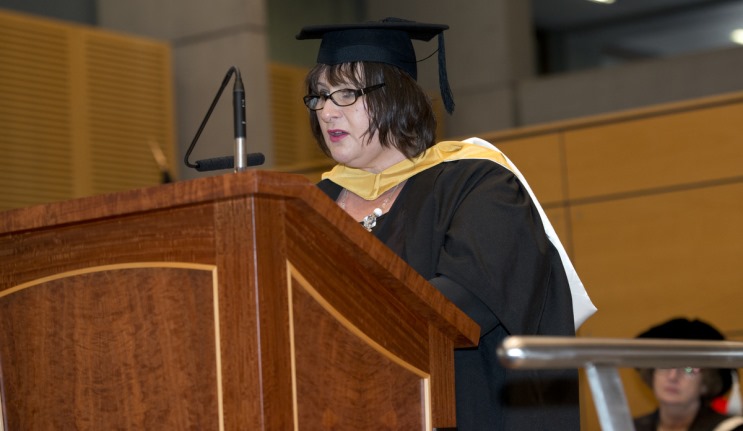
FEATURES
Masters graduate helps close indigenous education gaps
Macquarie has marked another milestone with its first Master of Indigenous Education graduate. Sharon Kerr, one of the first students to enrol in the degree, graduated recently and says that she and other Masters students will use their experience to enrich not only their own lives but also the lives of those around them.
“As graduates of Macquarie University, we will use our new values and abilities to find creative solutions and ensure that the undeserved in our community are included,” she said in her graduation speech.
“As a non-Indigenous person involved in serving Indigenous students, I realised that I had much to learn in order to serve effectively in my role,” she said.
“I enrolled in the Master of Indigenous Education program to gain knowledge and appreciation of Indigenous history, cultures, languages, ways of knowing and ways of doing.”
Pivotal program
The online Master of Indigenous Education program is the only postgraduate degree of its kind in Australia.
The course provides educators and policy advisers an in-depth understanding of the historical, contemporary and global issues faced by Indigenous Australia. It ensures they develop the knowledge and skills to provide a culturally appropriate education to Indigenous Australian students, as well as teach non-Indigenous students about Indigenous issues, people and culture.
“The actions of graduates of the Master of Indigenous Education degree will be pivotal to the important plight of ‘closing the gaps’ in the future,” says Michelle Trudgett, Head of Macquarie’s Department of Indigenous Studies, adding that Sharon Kerr did a terrific job of completing her studies in three semesters, while continuing to work.
Sharon plans to enrol in a PhD program and will continue to advocate for equity and justice.
“The course changed my life and made me a much more effective practitioner,” she said. “I have developed good friends and colleagues who share a heart for equity and a passion for justice. As a result of this course I will always be committed to cultural safety in both the workplace and learning environment.”